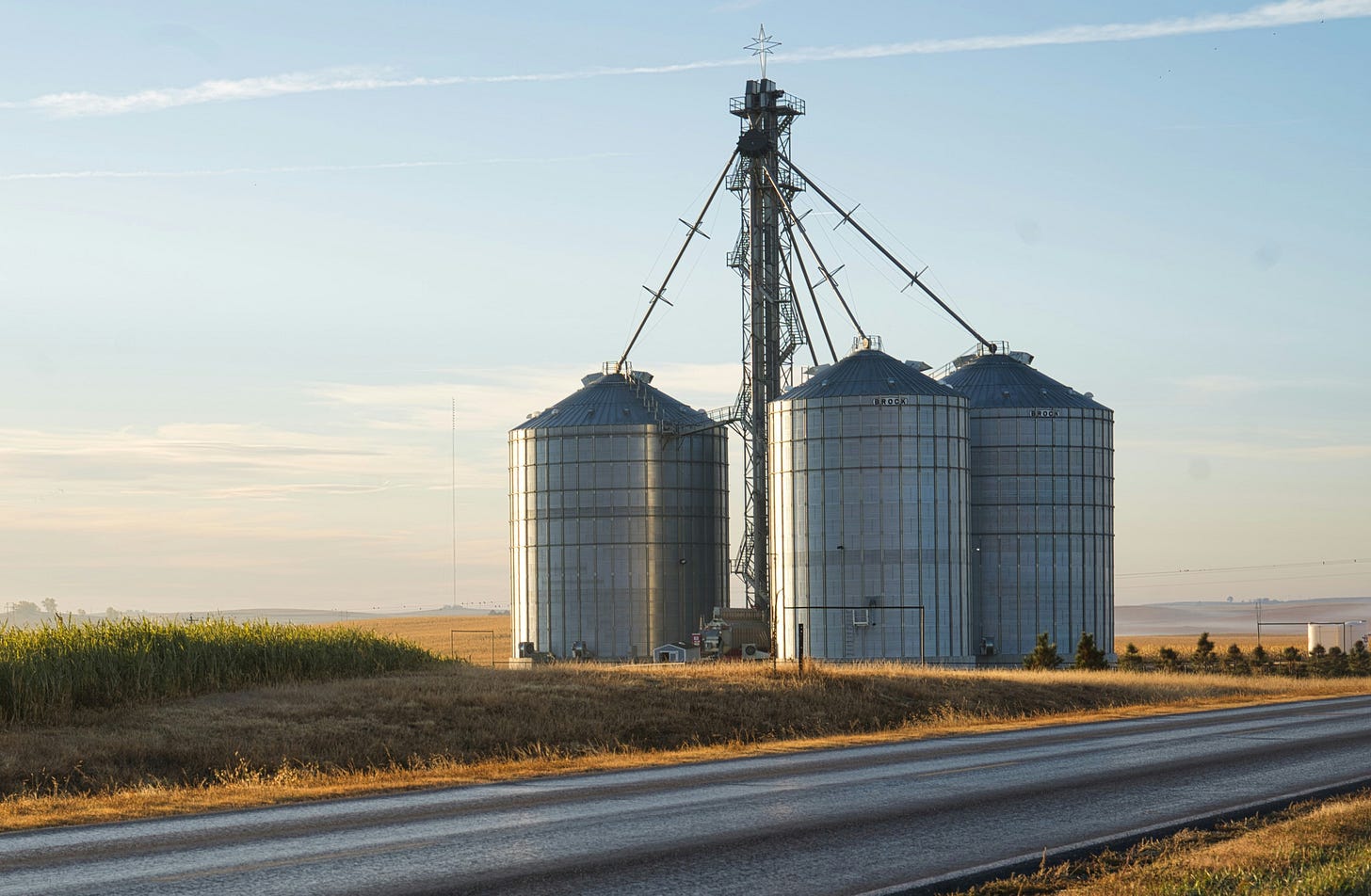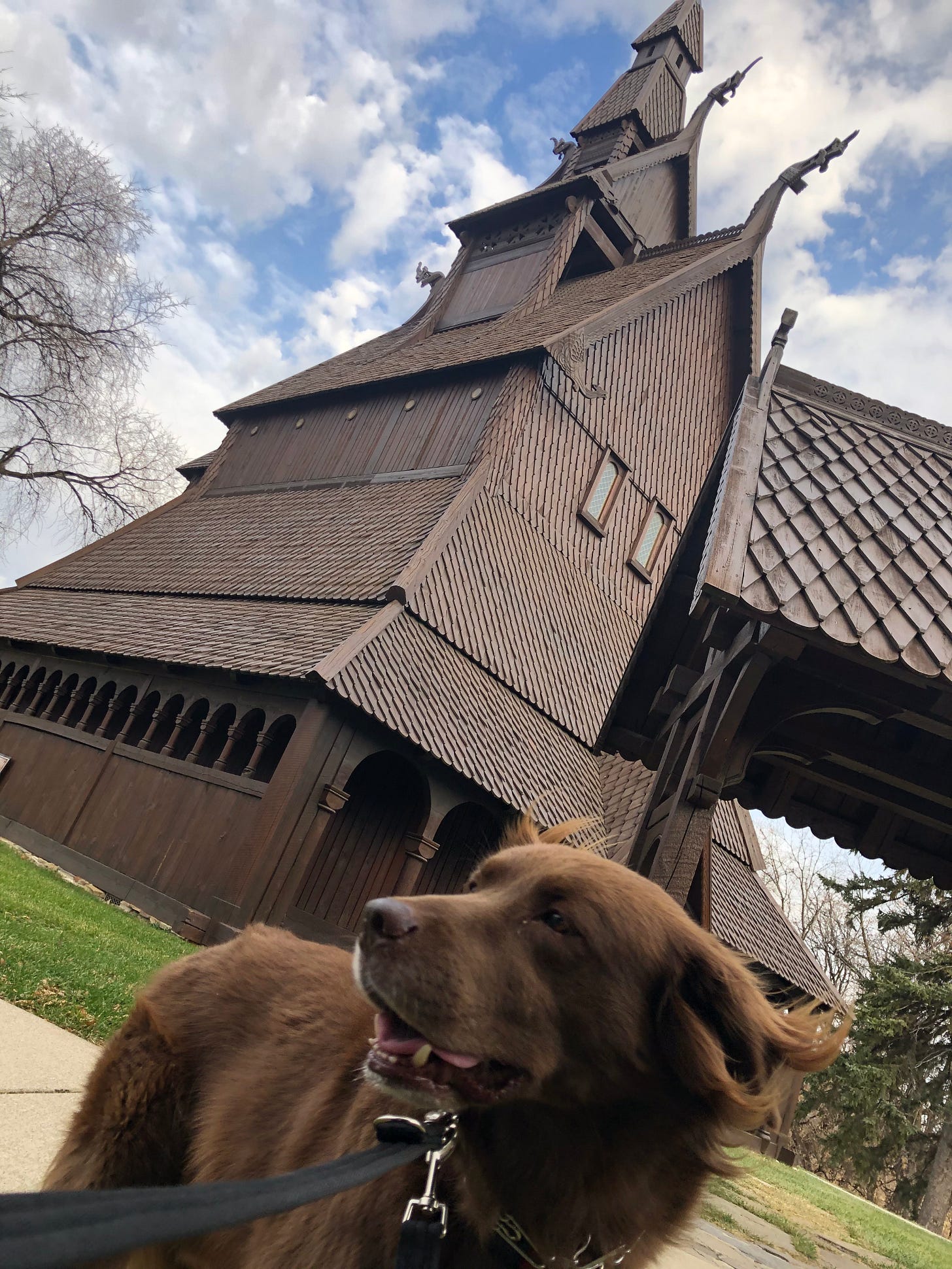Dear friends,
I’m still very much living the sandwich generation life, but lately I’ve been struggling a bit with feeling like an imposter.
It hits me when friends and other writers refer to what I do as “caregiving.” It pings me when I talk with people who are doing hands-on caregiving for others.
This week, for example, I visited with a friend who has two children with disabilities—one living with her and one living in his own place. She also has aging parents who live out of town and who she assists in various ways, both in person and over the phone.
That is some serious caregiving.
It reminds me a bit of 2020, when everything started shifting in my own life. Jon, Max and I made our pandemic move from Washington state back to my hometown in Minnesota, in part because we were looking for more support from our families to help with Max’s challenges. But when we arrived, I found that my mom’s dementia was further along than I had thought, and I realized my parents needed our support. Hello, sandwich season.
Before long, I felt as if I had a bank of silos in my brain. I was climbing up and down the ladders, up and into one silo related to my mom’s needs, where I would dig down into that topic, and then come racing back to the top, jump out and dive into a silo related to Max’s needs. And then a new silo would appear: Clear out my parents’ house. Help my parents move. Deal with mold in the basement. Get Max set up in a group home. Get Max set up with services. And more services. And education plans. Silo. Silo. Silo. Up and down, up and down, repeat and repeat and repeat.
Visiting with my friend the other day, I realized that I’m still jumping in and out of silos, but now it’s not at such a fierce pace. My mom passed away in August 2023, my dad lives in a retirement community across town, Max lives in a group home nearby, Leo the dog died in November.
My current situation doesn’t involve the hands-on lifting and bathing and feeding of people (and pet) who need that kind of physical caregiving, and God bless those who are in the midst of that.
But the fact is, even when I’m not using my hands for caregiving, my brain is whirring away … ticka-ticka-ticka-ticka … where are we with Max’s educational plan … when is my deadline to respond to that letter from that one agency … when are those forms due for Max’s services assessment … has Dad sent me his weekly grocery list …
I coordinate rides, have Zoom and in-person meetings, and field phone calls from disability advocates, teachers and service providers, attend medical appointments, and fill out forms for services, meet with Dad and sometimes my brother via Zoom about business matters, and, because Dad doesn’t drive anymore, make a weekly grocery run to pick up supplies for him and his cat.
I do this in the midst of my own life, which lately has included teaching online writing workshops, giving a book talk (about my memoir) and koto (Japanese zither) presentation, teaching yoga, mentoring a young friend and providing editorial feedback on magazine stories.
This schedule is varied but manageable—so much more manageable than it was a couple of years ago, when I was racing so fast between Max, my parents and my own life that I hardly knew whether I was coming or going.
So I return to my question, my fear of being an imposter: Even though Max no longer lives in our home, and my dad is mostly independent, except for driving, Is this caregiving? Or is it just life?
Finding some answers
I took my question online and found a page titled, “What is Caregiving?” Published by CaringInfo, a program of the National Alliance for Care at Home, it lists different types of caregivers:
Crisis caregivers
Long-term caregivers
Long-distance caregivers
Sandwiched caregivers
I recognize myself—I’ve played most of those roles.
But the page also lists the activities of caregiving, and here is where I truly feel seen. I’ll include their list and definitions verbatim:
Direct caring for a person, including physical care, emotional care (for example listening, talking, giving reassurance), and service to help meet physical and emotional needs such as shopping for food or driving to doctors’ appointments.
Maintaining the immediate physical environment in which the person lives—washing sheets, cleaning, yard work, paying bills and taxes.
Nurturing the person’s connections and relationships—communicating with family and friends, inviting people over, and facilitating phone calls.
Administrative caregiving—all the hours spent (on hold and otherwise) dealing with insurance companies, healthcare systems, and doctors’ offices.
Between Max and Dad, I have experienced or am experiencing at least a bit of each of those bullet points and today especially am owning the idea of administrative caregiving—“all the hours spent (on hold and otherwise) dealing with insurance companies, healthcare systems, and doctors’ offices.” Oh, yes.
Even as I drafted this post, I spent 20 minutes “administrative caregiving,” sitting on hold, listening to scratchy elevator music play from my phone’s speaker, waiting to talk with a representative on behalf of Max.
As I return to the question of whether I currently have the right to consider myself a caregiver, it occurs to me that caregiving has a way of sneaking up on us. We do a bit and do a bit and do a bit, and we keep squeezing tasks and responsibilities in among the rest of our life activities—work, social, shopping, cooking, house maintenance, being a citizen and just, well, being.
The tasks and the time they take pile up. And not recognizing and honoring the work we do caring for others is a fast path to burnout.
So I’ve made peace with the old question … by asking a new one: How is all this not caregiving?
I’m reclaiming my identity as a caregiver and considering it an honor to be part of an army of unpaid caregivers across the United States—and around the world—who show up in various ways for their families.
What I’m learning is that there are many faces of caregiving, and if you’re reading this, I’m guessing you probably are one too.
On “self-caregiving”
Now. I want to take a moment to highlight one more activity of caregiving. I deleted it from the list above, so I could share it here. How ironic, because this particular activity is one that so many of us caregivers leave for last or leave out altogether. Ready?
Selfcare, not usually included on lists of caregiving activities, but in many ways enabling the others
That last activity of caregiving is what has saved me. I teach a yoga class every week, a commitment that guarantees I maintain at least some semblance of selfcare.
I got more selfcare thanks to Leo and his need for twice-daily walks (and our lack of a backyard fence). That guy helped me keep life between the lines—taking deep breaths and processing big feelings. Even though he’s gone now, part of his legacy is that he showed me how good consistent selfcare feels. Leo trained me, and I maintain the habit of “taking Leo for a walk” or a run almost every day.
That last activity of caregiving truly is about caregiving for the caregiver—becoming a self-caregiver, if you will. And I know some (many? most?) days it feels like one more darn thing to do, but the payoff is so worth it.
A couple of friends have said recently that they would appreciate it if I would include a little wellness moment with Sandwich Season, so I’m playing with that idea. (Stay tuned.)
Meanwhile, if you’d like a 15-minute yoga experience today, here’s a yoga video I made and shared in 2020.
Whatever your caregiving journey looks like today, please try to make sure self-caregiving—even just 14 minutes and 47 seconds—or just 5 minutes—is part of it.
All best wishes,
Sarah
Thank you for reading Sandwich Season! If you enjoy my newsletter, there are a few ways to let me know. You can give it a ❤️—and I love hearing from you in the comments. If you aren’t a paid subscriber, you can buy me a one-time coffee, become a paid subscriber and/or share Sandwich Season with others. However you show up, I so appreciate you joining me here!







Oh my, you've written about the very topic I've been considering writing about for my next post! What is a caregiver? And how I sometimes feel an imposter compared to those doing hands on personal care, and yet.....i have a myriad responsibilities that would be considered care. I'll tag you in on that post when I write it (next post scheduled for this weekend if i can find the time!)
SO true, Sarah!
"So I’ve made peace with the old question … by asking a new one: *How is all this* not *caregiving?*
I’m reclaiming my identity as a caregiver and considering it an honor.."
I proactively told a friend & others 'you're still a caregiver when you're organising finances, care etc at a distance. I know from a good friend, how difficult caregiving at a distance can be, especially sandwiched. It would be amazing if this human-inter relationship of care—giving and care—taking and care—receiving and community could be re-established as essential intergenerational community dynamics! Perhaps another angle for another article ;-)